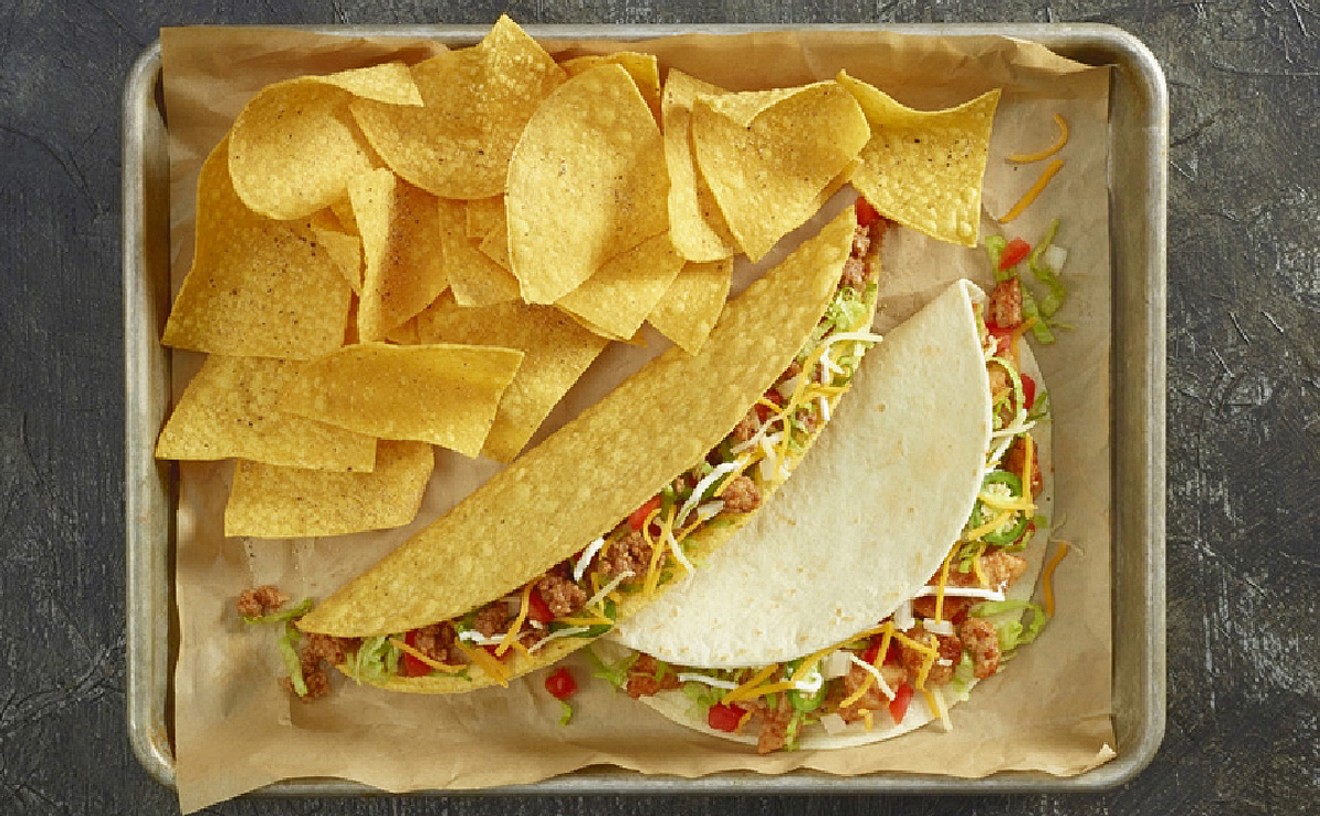It's no secret that fruits and vegetables are the health Holy Grail. As author and professor Michael Pollan so succinctly said: "Eat food. Not too much. Mostly plants." But it's not quite as simple as chowing down on anything you find in the produce aisle, because lots of it is covered in poison.
In tests done by the Environmental Working Group (EWG), pesticide residue has been found on 67 percent of food samples. Did we mention that's after they've been washed and/or peeled? Gross.
That's the bad news. The good news is, some fruits and veggies are cleaner than others. The EWG offers an annual list of recommendations that includes the "Dirty Dozen" and the "Clean Fifteen." The list categorizes which conventional produce is safest to eat and which to avoid. Check out what the EWG had to say after the jump.
See also: Florida Citrus Grower That Killed Millions of Bees With Pesticide Gets $1,500 Fine
The most recent list, in a nutshell, is as follows:
Dirty Dozen
- Apples
- Celery
- Cherry tomatoes
- Cucumbers
- Grapes
- Hot peppers
- Imported nectarines
- Peaches
- Potatoes
- Spinach
- Strawberries
- Sweet bell peppers
- Collards and kale
- Summer squash and zucchini
Clean Fifteen
- Asparagus
- Avocados
- Cabbage
- Cantaloupe
- Sweet corn
- Eggplant
- Grapefruit
- Kiwi
- Mangos
- Mushrooms
- Onions
- Papayas
- Pineapple
- Frozen sweet peas
- Sweet potatoes
But what if you absolutely can't live without strawberries? Or grapes? Or kale? Does washing help? Sadly, no.
"Because all produce has been thoroughly cleaned before analysis, washing a fruit or vegetable would not change its ranking in the EWG's Shopper's Guide," says Sara Sciammacco, director of communications for the Environmental Working Group. "If you don't wash conventional produce, the risk of ingesting pesticides is even greater than reflected by USDA test data."
But where does the EWG get this info? Well, they analyze pesticide-testing data generated by scientists at the USDA and the FDA -- basically, the folks who determine what Americans can eat.
Going organic basically eliminates issues with the dirty dozen, but it's more expensive.
"'Organic' is a designation used by the U.S. Department of Agriculture National Organic Program to certify food that was produced without synthetic chemicals or fertilizers, genetic engineering, radiation, or sewage sludge," Sciammacco says. "Some organic growers are allowed to use chemical sprays on their crops, but they must follow a different set of standards set by the USDA, and the pesticides must be derived from natural sources."
So basically, organic equals safer. Whole Foods, here we come.
Seriously, America. GMOs, pesticides, plastic in our Subway bread -- what is going on in the world?
Update: After publication, Teresa Thorne of the Alliance for Food and Farming sent the following response:
I am with the Alliance for Food and Farming, and we represent organic and conventional farmers of fruits and vegetables. We saw your story in the Miami New Times regarding pesticide residues and the so-called "Dirty Dozen" list. According to a paper in the peer-reviewed Journal of Toxicology, which examined EWG's list, it was determined that substitution of organic forms of produce for conventional forms did not result in any decrease in risk. More important, it was determined that EWG did not use any accepted scientific procedures when developing the list. You see, EWG reinterprets the USDA Pesticide Data Program report, FDA sampling data, and years-old residue findings to develop their list. You should know the new USDA PDP report was just released last week. And the findings were the same as in previous years, with both EPA and USDA stating that "residues do not pose a food safety concern for Americans." You can review the Journal of Toxicology paper here and read the actual USDA PDP report here.You should also know comments made by Sara Sciammacco of EWG in your article were not accurate. As a courtesy, I have copied Sara and Alex Formuzis of EWG on this email so that they can respond directly to both of us about our concerns.
"Because all produce has been thoroughly cleaned before analysis, washing a fruit or vegetable would not change its ranking in the EWG's Shopper's Guide," says Sara Sciammacco, director of communications for the Environmental Working Group. "If you don't wash conventional produce, the risk of ingesting pesticides is even greater than reflected by USDA test data."
The EWG website states that they also use FDA data to compile these "lists." FDA does not wash the produce it samples so "because all the produce has been thoroughly cleaned before analysis" is incorrect. It should be noted that FDA clearly states that washing "removes and often eliminates any residues which may be present."
"'Organic' is a designation used by the U.S. Department of Agriculture National Organic Program to certify food that was produced without synthetic chemicals or fertilizers, genetic engineering, radiation or sewage sludge," Sciammacco says. "Some organic growers are allowed to use chemical sprays on their crops, but they must follow a different set of standards set by the USDA and the pesticides must be derived from natural sources."
Organic producers can, in fact, use synthetic pesticides. It would be helpful if EWG could clarify their position on the use of organic pesticides. Specifically, does EWG agree that organically approved natural and synthetic pesticides are safe to use on fruit and vegetable farms? EWG is also on the record as stating that "conventional produce is safe to eat," which I'm sure Sara/Alex will confirm.
It is the goal of the AFF to provide factual and science-based information to consumers so they can make the right shopping choices for their families. We strongly affirm that organic and conventional produce is safe to eat and we encourage increased consumption of both for improved public health. But we also work to correct misinformation and common misconceptions that may raise safety fears among consumers, which is the reason for our outreach to you today.
You can learn more about the stringent laws and regulations governing the use of organic and conventional pesticides at the AFF's new webpage. You should also read the new Q&A with Brian Leahy, Director, California Department of Pesticide Regulation and a former organic farmer. Director Leahy discusses why pesticides are used and how they are regulated. The Q&A can be found here..
There is much more information about the safety of organic and conventional produce at safefruitsandveggies.com. We hope you'll visit the website which was developed by experts in toxicology, risk analysis, nutrition, food safety and farming.
Follow Hannah on Twitter @hannahalexs.
Follow Short Order on Facebook, Twitter @Short_Order, and Instagram @ShortOrder.









